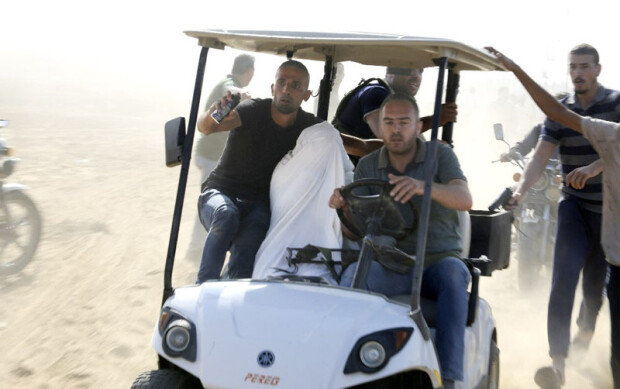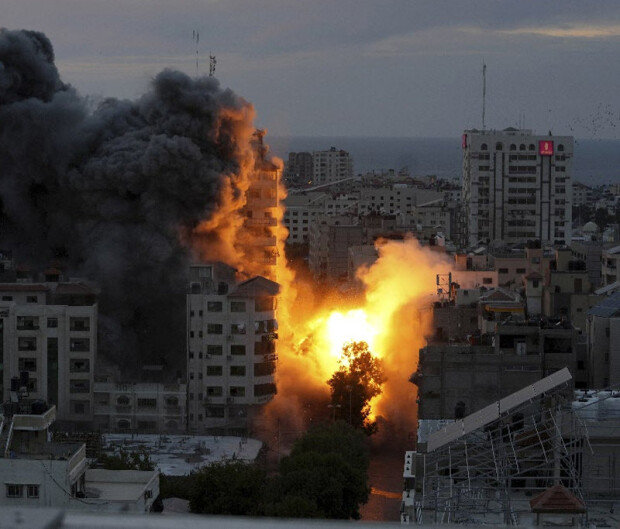Israel breached after 50 years
Israel breached after 50 years
Posted October. 09, 2023 08:11,
Updated October. 09, 2023 08:12


In the early morning, Hamas, an armed group governing the Gaza Strip, launched a comprehensive airstrike that breached Israel’s mainland and air defense network. This incident took place five decades after the ‘Yom Kippur War’ of 1973, during which Egypt, Syria, and other nations attacked Israel. Some have likened this event to Israel’s version of the 9/11 terrorist attacks. Despite Israel’s renowned low-altitude air defense system, the ‘Iron Dome,’ which is celebrated for its missile interception capabilities, and the world-renowned Mossad intelligence agency, they proved ineffective in countering this airstrike.
Israel swiftly announced its intention for ‘robust retaliation’ and officially declared that it had entered a state of war. Hezbollah, a Lebanese armed group that lent support to Hamas’ attack, has also initiated attacks on military installations in northern Israel along the border. This development has raised concerns about the potential escalation into a new conflict in the Middle East.
On the morning of Saturday (local time), Hamas Supreme Commander Mohammed Deif announced the commencement of Operation ‘Al-Aqsa Flood,’ saying, “This marks the most significant day in our struggle to end the last occupation on Earth.” As reported by Hamas TV, starting around 6:30 a.m. on that day, approximately 7,000 missiles were launched from the Gaza Strip towards cities in central and southern Israel. Concurrently, militants infiltrated Israel via land, sea, and air, taking civilians and soldiers hostage. As of the latest update, the surprise attack has resulted in the loss of more than 300 lives and over 1,500 injuries in Israel alone.
On Sunday, one day following the attack, Israeli Prime Minister Benjamin Netanyahu officially announced the commencement of the war in a statement, asserting, “We are embarking on a protracted and challenging conflict.” He went on to express a firm commitment to severe consequences and reprisals, declaring, “We will transform every location associated with Hamas, be it their hideouts or operational bases, into rubble.” Shortly after his declaration, an airstrike was initiated on the Gaza Strip.
There are growing concerns within the international community that the Middle East’s instability may persist and potentially escalate into a proxy conflict involving Iran, a supporter of Hamas and Hezbollah, and the U.S., which backs Israel.
That day, U.S. President Joe Biden held a phone conversation with Prime Minister Netanyahu and delivered an emergency address, saying his administration’s support of Israel’s security is “rock solid and unwavering.” He further emphasized, “This is not a moment for any party hostile to Israel to exploit these attacks to seek advantage,” thus warning about potential Iranian intervention, given their support for Hamas. In response, Iran defended Hamas in a statement released by its Ministry of Foreign Affairs, asserting that it pertains to “the rights of the Palestinian people.”
카이로=김기윤 pep@donga.com







